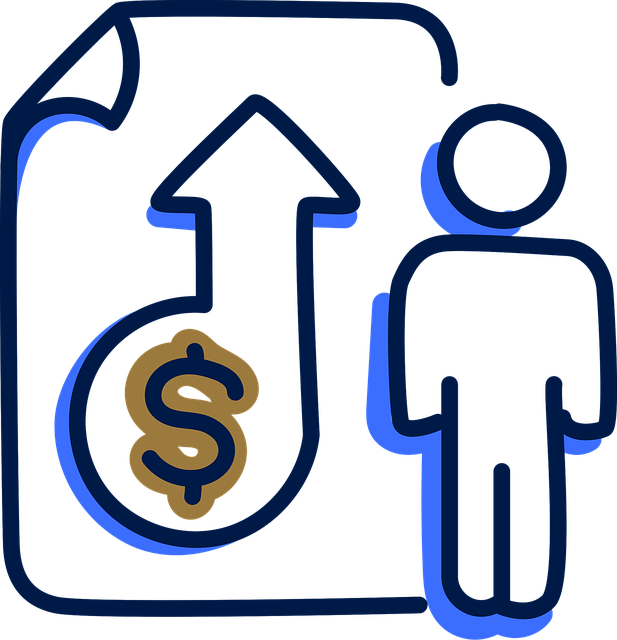debt consolidation mortgages, particularly unsecured options, offer individuals with multiple high-interest debts a centralized, lower-interest solution that simplifies repayment. Lenders assess financial health to determine loan terms, emphasizing careful consideration. For those with less-than-perfect credit, these loans provide an alternative to traditional financing by merging debts into one manageable repayment. After a thorough financial assessment and application process, approved funds can be used to pay off multiple creditors, streamlining finances and potentially lowering interest rates, but consistent, timely repayments are key for successful outcomes and improved credit history.
Struggling with multiple debts and a poor credit history? debt consolidation mortgages could be a viable solution. This article explores unsecured consolidation loans, tailored for those with less-than-perfect credit. We demystify the process, from understanding these loans to navigating the application procedure. Learn about the benefits of debt consolidation mortgages and crucial considerations for repairing your credit score. Take control of your finances and make informed decisions.
- Understanding Unsecured Consolidation Loans
- Eligibility Criteria for Bad Credit Borrowers
- The Process of Applying for Debt Consolidation Mortgages
- Benefits and Considerations for Credit Repair
Understanding Unsecured Consolidation Loans
Unsecured consolidation loans are a type of financial instrument designed to simplify and streamline multiple debt obligations into a single, more manageable loan. This approach is particularly beneficial for individuals with bad credit histories, as it allows them to consolidate high-interest debts like credit card balances, personal loans, or even past due bills into one lower-interest debt. By doing so, borrowers can enjoy better financial control and potentially save on interest payments.
Debt consolidation mortgages, though unsecured, still come with terms and conditions that require careful consideration. Lenders will evaluate the borrower’s current financial situation, including income, existing debts, and credit score, to determine the loan amount and interest rate offered. It is crucial for potential borrowers to understand these factors and their impact on the overall debt consolidation process to make informed decisions.
Eligibility Criteria for Bad Credit Borrowers
For individuals with a less-than-perfect credit history, accessing traditional loans can be challenging. However, debt consolidation mortgages for bad credit borrowers offer an alternative solution. These specialized loans are designed to help those struggling with multiple high-interest debts by consolidating them into a single, more manageable repayment.
Eligibility criteria vary among lenders, but generally, borrowers need to demonstrate a stable source of income and the ability to make consistent repayments. While a poor credit history may not automatically disqualify you, it could result in higher interest rates or specific requirements, such as providing a co-signer or offering collateral. Lenders assess each application individually, considering factors beyond just credit scores to determine eligibility for these unsecured consolidation loans.
The Process of Applying for Debt Consolidation Mortgages
When considering debt consolidation mortgages, the first step is to assess your financial situation and understand your credit score. This involves reviewing your current debts, including credit cards, personal loans, and any existing mortgages or loans. It’s important to know that a bad credit history doesn’t necessarily rule out options; many lenders now offer unsecured consolidation loans tailored for individuals with less-than-perfect credit. These loans provide a chance to repair and rebuild while consolidating debts into a single, more manageable payment.
The application process typically begins with an online search or consultation with a financial advisor who can guide you through the various loan types available. You’ll need to provide detailed information about your income, existing debts, and any assets. Lenders will assess your affordability and creditworthiness based on this data. Once approved, the funds are disbursed, allowing you to pay off multiple creditors, simplifying your finances and potentially reducing interest rates.
Benefits and Considerations for Credit Repair
Debt consolidation mortgages can be a powerful tool for individuals aiming to repair their credit history. By consolidating multiple high-interest debts into one loan with a lower interest rate, borrowers can reduce their monthly payments and free up cash flow. This financial relief allows them to focus on repaying the principal balance more efficiently, which positively impacts their credit score over time.
However, it’s essential to consider that debt consolidation mortgages are not a quick fix. While they offer benefits like lower monthly payments and improved cash management, they do not magically erase bad credit history. The success of this approach depends on disciplined repayment and responsible financial management. Borrowers must commit to making timely payments and adhering to the loan terms to see meaningful improvements in their credit rating.
Debt Consolidation Mortgages can be a powerful tool for individuals with bad credit looking to repair their financial situation. By understanding the eligibility criteria and following the application process, borrowers can access funds to consolidate debts, reduce interest rates, and regain control over their finances. While there are benefits to this approach, it’s crucial to weigh these options carefully, considering both short-term relief and long-term credit goals for a successful financial repair journey.
